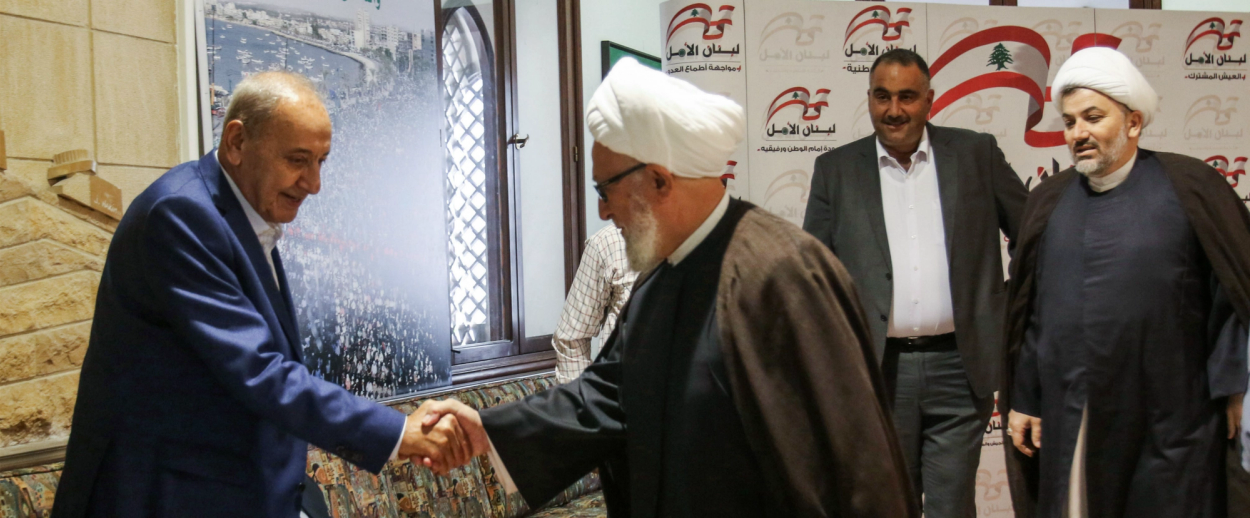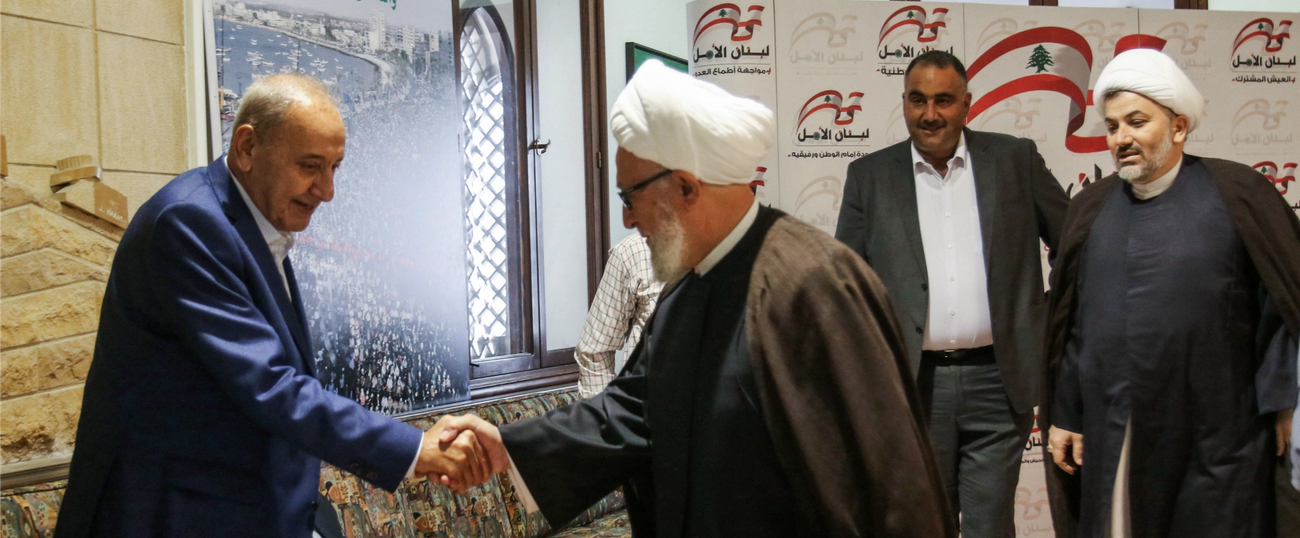The Myth of an Independent Lebanon
The Lebanese Armed Forces won’t do more to confront Hezbollah because the two groups are fundamentally allied




Western intelligence sources have revealed that in July and August Iran used a civilian airliner to fly arms to Hezbollah directly through Beirut International Airport. That would be right after the United States completed the delivery of light attack aircraft to the Lebanese Armed Forces (LAF) in June, and right before a high-ranking CENTCOM delegation visited Lebanon in mid-August. On both occasions, U.S. officials praised the LAF as the “defender of Lebanon’s borders”—a cringeworthy line that captures the painful silliness of U.S. policy. The LAF will not confront a group with which it enjoys close relations and that effectively controls the Lebanese government, from which it takes its orders.
While the U.S. government justifies its policy in Lebanon with lines about strengthening Lebanese “state institutions,” the basic flaw in this approach undermines every aspect of policy towards the country.
The reason we’re spending hundreds of millions of dollars on the LAF, we’ve been told for the last 12 years, is in order to enable Lebanon’s “state institutions” to “extend government authority” over the entirety of the country. The logic behind this in previous years was the belief that Hezbollah’s ability to bring in weapons shipments was partly due to the LAF not being deployed to Lebanon’s eastern border with Syria. The key to solving the “Hezbollah problem,” according to this line of thinking, was to assist the Lebanese state to exert control over all its territory.
This same reasoning is evident in the State Department’s Country Reports on Terrorism, which have classified Lebanon as a “terrorist safe haven.” The U.S. government defines terrorist safe havens as ungoverned or poorly governed areas where the absence of state control allows terrorists to organize and transit freely. Hence, in the 2015 and 2016 reports, the State Department declared that the Lebanese government “did not have complete control of all regions of the country, or fully control its borders with Syria and Israel.”
The emphasis on the borders is convenient. It fits well with the “safe haven” framework, and renders the problem a matter of LAF deployment and capacity, which makes current U.S. policy sound coherent. But the issue in question here is not a remote border region where government authority is lacking—especially since the LAF has been deployed to the South since 2006, and in recent years it has completed its deployment to the eastern border with Syria. None of this has meant anything for Hezbollah’s ability to operate freely. If anything, it has protected and facilitated it.
Rather, what we’re talking about here is Lebanon’s only international airport, where “government authority”—represented by the LAF and other security agencies—is fully present. This fact on its own requires we reconsider the adequacy of the “terrorist safe haven” category for Lebanon. Because the issue is not one of absent government authority or a lack of capacity. The State Department’s definition of terrorist safe haven also notes the factor of “political will,” which likewise accentuates the inadequacy of the category for Lebanon.
The terrorist safe haven classification rests on the fundamental premise that there’s a clear dichotomy between “government” and “terrorist group.” In the case of Lebanon this dichotomy is invalid. It’s not just that the Lebanese government never recognized Hezbollah as a terrorist organization, it’s also that Hezbollah is the Lebanese government.
It is for this reason that advocates of the current U.S. policy of aid to the LAF, from the U.S. ambassador to Lebanon to your average think-tanker in D.C., always emphasize the capacity-building aspect of the aid. But the fact that Hezbollah is the dominant force in Lebanese politics, parliament and the government not only makes capacity-building a moot point, it also means that the second, arguably more important factor, “political will,” cannot possibly materialize.
This is to say nothing of the actual influence Hezbollah has inside the LAF and the other security agencies, and the ongoing synergetic relationship it maintains with them. As such, the Iranians get to bring in arms through Beirut airport, where the LAF and other U.S.-funded security agencies are present, without any worry. In fact, they can count on the LAF’s cooperation.
Take, for example, this data point, provided by the U.N. Interim Force in Lebanon (UNIFIL) last year. Over the course of more than a decade since it was first deployed, UNIFIL’s Maritime Task Force referred over 10,500 suspicious vessels to the Lebanese navy for inspection. How many vessels, out of 10,500, did the LAF find to be carrying arms? You guessed it. Zero. In other words, the LAF is not merely a passive bystander. It is actively facilitating Hezbollah’s armament. The U.S., meanwhile, foots the bill, and soaks the LAF in praise.
This cannot continue. There needs to be a comprehensive rethinking of the underlying premise on which Washington’s entire policy rests. A requirement written into the National Defense Authorization Act for Fiscal Year 2019 offers the first step in that direction. It “directs the Secretary of Defense, in coordination with the Secretary of State, to provide a report, not later than September 1, 2018, on U.S. assistance to the LAF.” The report will have to include “descriptions of the scope and trends of LAF … activities to address progress toward the disarmament of Hezbollah …, the movement and establishment of Iranian or Hezbollah arms, personnel, and infrastructure in and through Lebanon.” Also, it will include an “assessment of the military, political, and economic factors impacting the ability of the LAF” to enforce these terms. We’re already past the Sept. 1 deadline. Let’s hope Congress won’t wait too long.
The reason Hezbollah continues to be able to fly in Iranian planes loaded with weapons straight into Beirut airport has nothing to do with absence of state authority, or lack of LAF capacity. Rather, the theory undergirding U.S. policy, which posits a dichotomy between the Lebanese government and Hezbollah, simply has no relation to the reality of Lebanon. The LAF will never take action to prevent Hezbollah’s arms smuggling, because it will never be asked to by the Lebanese government, regardless of how much we “professionalize” it or build up its capacity.
What this also means is that Lebanon is not a “terrorist safe haven.” It’s actually something worse.
Tony Badran is Tablet’s news editor and Levant analyst.